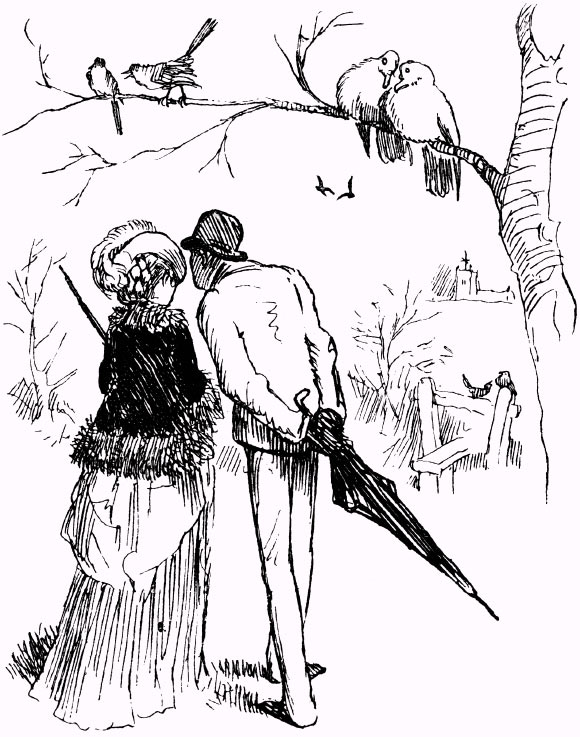According to a new study reported in the Proceedings of the National Academy of Sciences, the threat of infants being killed by rival males is the key driver of monogamy in primates including humans.

Henry Blackburn Randolph Caldecott, A Personal Memoir (London, England: Sampson Low, Marston, Searle, and Rivington, Limited, 1889; via the Florida Center for Instructional Technology)
Until now, a number of hypotheses have been proposed to explain the evolution of monogamy among mammals. These include: paternal care, when the cost of raising offspring is high; guarding solitary females from rival males; and infanticide risk, where males can provide protection against rival males.
To uncover the evolutionary pathway, study lead author Dr Christopher Opie from University College London, senior author Dr Susanne Shultz from the University of Manchester with two co-authors gathered data across 230 species of primates.
The data were then plotted on a family tree of the relationships between primate species. Bayesian methods were used to re-run evolution millions of times across the family tree to discover whether different behaviors evolved together across time, and if so, which behavior evolved first.
This then allowed the scientists to determine the timing of trait evolution and show that male infanticide is the cause of the switch from a multi-male mating system to monogamy in primates, while bi-parental care and solitary ranging by females are a result of monogamy, not the cause.
“This is the first time that the theories for the evolution of monogamy have been systematically tested, conclusively showing that infanticide is the driver of monogamy,” Dr Opie said.
“This brings to a close the long running debate about the origin of monogamy in primates.”
“What makes this study so exciting is that it allows us to peer back into our evolutionary past to understand the factors that were important in making us human,” Dr Shultz added.
“Once fathers decide to stick around and care for young, mothers can then change their reproductive decisions and have more, brainy offspring.”
______
Bibliographic information: Christopher Opie et al. Male infanticide leads to social monogamy in primates. PNAS, published online July 29, 2013; doi: 10.1073/pnas.1307903110







